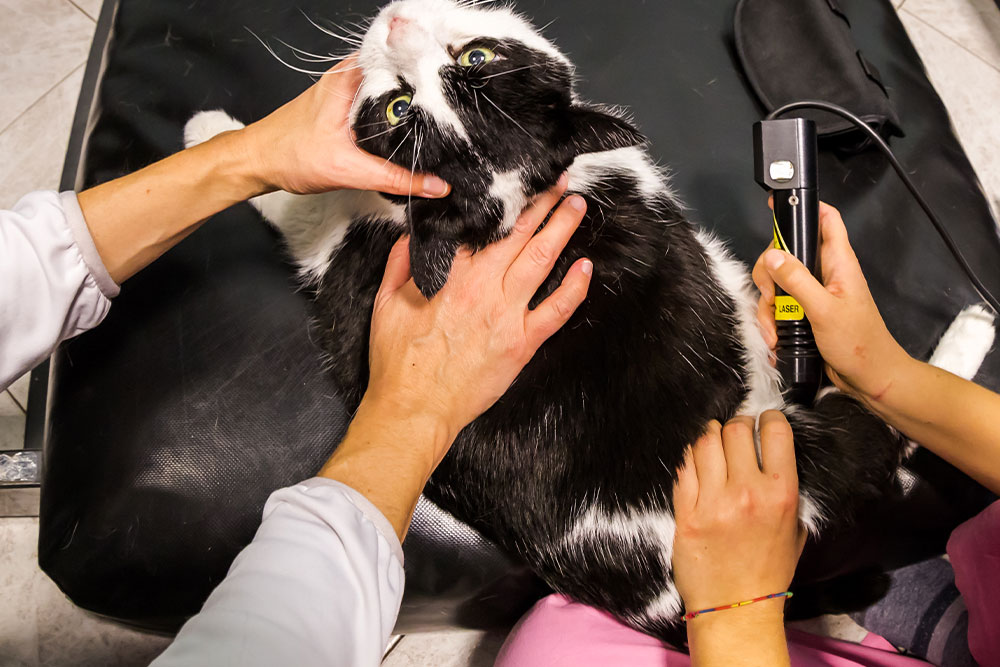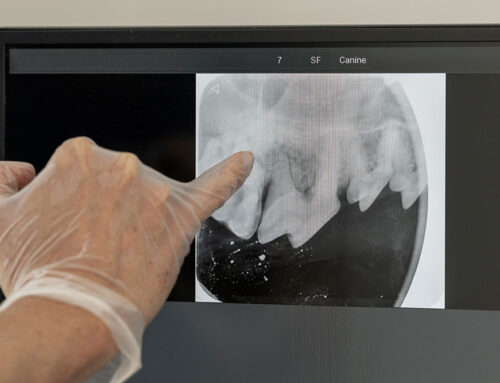Understanding Osteoarthritis in Pets: A Guide for Owners in Athens, Alabama
What is Osteoarthritis and How Does It Affect Pets?
Osteoarthritis (OA) is a progressive joint disease that commonly affects aging pets. It occurs due to the breakdown of joint cartilage, leading to pain, stiffness, and reduced mobility. Left untreated, it can severely impact a pet’s quality of life, causing chronic discomfort and muscle loss due to reduced activity.
Medical Perspective on Osteoarthritis
Osteoarthritis involves the gradual deterioration of:
- Cartilage, which cushions joints and prevents bone-on-bone contact.
- Synovial fluid, which lubricates the joints for smooth movement.
As cartilage wears away, bones rub against each other, causing pain, inflammation, and the formation of bone spurs. This worsens over time, leading to further joint damage.
Long-Term Effects and Consequences
Without intervention, osteoarthritis can lead to:
- Severe joint degeneration
- Chronic pain and lameness
- Reduced mobility and muscle atrophy
Early diagnosis and long-term management are essential to slow disease progression and improve mobility.
Recognizing Signs of Osteoarthritis in Dogs and Cats
Early Symptoms
Osteoarthritis is not always obvious in the early stages. Look for:
- Limping or stiffness, especially after rest or in cold weather.
- Reduced interest in play or walks.
- Difficulty getting up, jumping, or climbing stairs.
- Changes in behavior, such as irritability or withdrawal.
Behavioral Changes and Impact
Pain can change your pet’s mood. If they flinch, growl, or shy away from touch, particularly around the hips, knees, or elbows, osteoarthritis may be the cause.
When to see a vet: If symptoms persist or worsen over time, schedule an evaluation at Town & Country Animal Hospital.
How Osteoarthritis is Diagnosed at Town & Country Animal Hospital
Veterinary Evaluation
Your vet will:
- Examine your pet’s joints for pain, swelling, and restricted movement.
- Use X-rays to detect cartilage loss, bone spurs, and joint abnormalities.
- Recommend blood tests to rule out conditions that mimic arthritis, like Lyme disease or autoimmune disorders.
What an Emergency Looks Like
Seek immediate veterinary care if your pet:
- Suddenly cannot walk or stand.
- Cries out in pain when moving.
- Has severe swelling in a limb.
Acute lameness or sudden paralysis could indicate a joint injury or severe inflammation requiring urgent treatment.
Treatment Options for Pets with Osteoarthritis
Medications and Supplements
Your veterinarian may recommend:
- NSAIDs (Non-Steroidal Anti-Inflammatory Drugs) to reduce pain and inflammation.
- Chondroprotective agents to slow cartilage deterioration.
- Joint supplements (glucosamine, chondroitin, MSM) to support cartilage repair.
Important: Never give human pain medications to pets—many are toxic! Always consult a vet for the safest options.
Physical Therapy and Rehabilitation
- Hydrotherapy: Swimming or underwater treadmill therapy to improve mobility without stressing joints.
- Therapeutic exercises: Gentle, controlled movements to strengthen muscles and maintain flexibility.
Advanced Treatments and Innovations
- Laser therapy: Uses light waves to reduce pain and inflammation at the cellular level.
- Stem cell therapy: Promotes natural cartilage regeneration, particularly in severe cases.
These therapies can help reduce dependency on medication and improve long-term joint function.
Long-Term Management and Outcomes
Osteoarthritis is a lifelong condition, but with proper treatment, pets can maintain a high quality of life. Regular check-ups ensure treatment plans remain effective and adjusted as needed.
Lifestyle and Home Care Strategies
Making Your Home More Pet-Friendly
Adjust the environment to support your pet’s mobility:
- Use orthopedic bedding to cushion joints.
- Install ramps instead of stairs for easier movement.
- Provide non-slip flooring to prevent falls.
The Role of Exercise
Keep your pet active but not overworked:
- Frequent short walks instead of long, strenuous outings.
- Low-impact activities, such as swimming or light play.
- Avoid excessive jumping or running on hard surfaces.
Warning: Lack of movement can lead to stiff joints and muscle loss, making arthritis worse.
Nutrition and Diet: Supporting Joint Health
Anti-Inflammatory Diets
- Omega-3 fatty acids (found in fish oil) reduce joint inflammation.
- High-protein diets help maintain muscle strength.
- Antioxidant-rich foods support cartilage health.
Joint-Supportive Supplements
- Glucosamine & Chondroitin – Helps rebuild cartilage.
- Green-lipped mussel – Reduces inflammation.
- Turmeric & Curcumin – Natural anti-inflammatory properties.
Ask your vet about prescription joint diets, formulated to provide the optimal balance of nutrients for arthritis care.
The Importance of Regular Veterinary Check-Ups
- Routine check-ups help track your pet’s joint health and adjust treatments as needed.
- Early intervention is key—even mild stiffness should be evaluated to prevent future mobility loss.
Schedule a wellness exam at Town & Country Animal Hospital today.
FAQs: Common Questions About Pet Osteoarthritis
How long can a pet live with osteoarthritis?
With proper management, many pets live comfortably for years despite arthritis.
Is surgery necessary for arthritis?
Surgery is only considered in severe cases, such as advanced hip dysplasia or joint collapse.
How do I know if my pet’s arthritis is getting worse?
Signs of worsening arthritis include:
- More frequent limping or stiffness.
- Increased difficulty standing or walking.
- Decreased appetite or reluctance to move.
If you notice any of these, consult your veterinarian immediately.
Resources and Support for Pet Owners in Athens, Alabama
Looking for more guidance? Check out these expert resources:
Take Action Today for Your Pet’s Joint Health
Osteoarthritis is manageable, and early intervention is crucial. By combining veterinary care, home adjustments, and proper nutrition, you can help your pet live a comfortable, pain-free life.
Schedule an appointment with Town & Country Animal Hospital today to discuss arthritis management options for your pet.








Leave A Comment